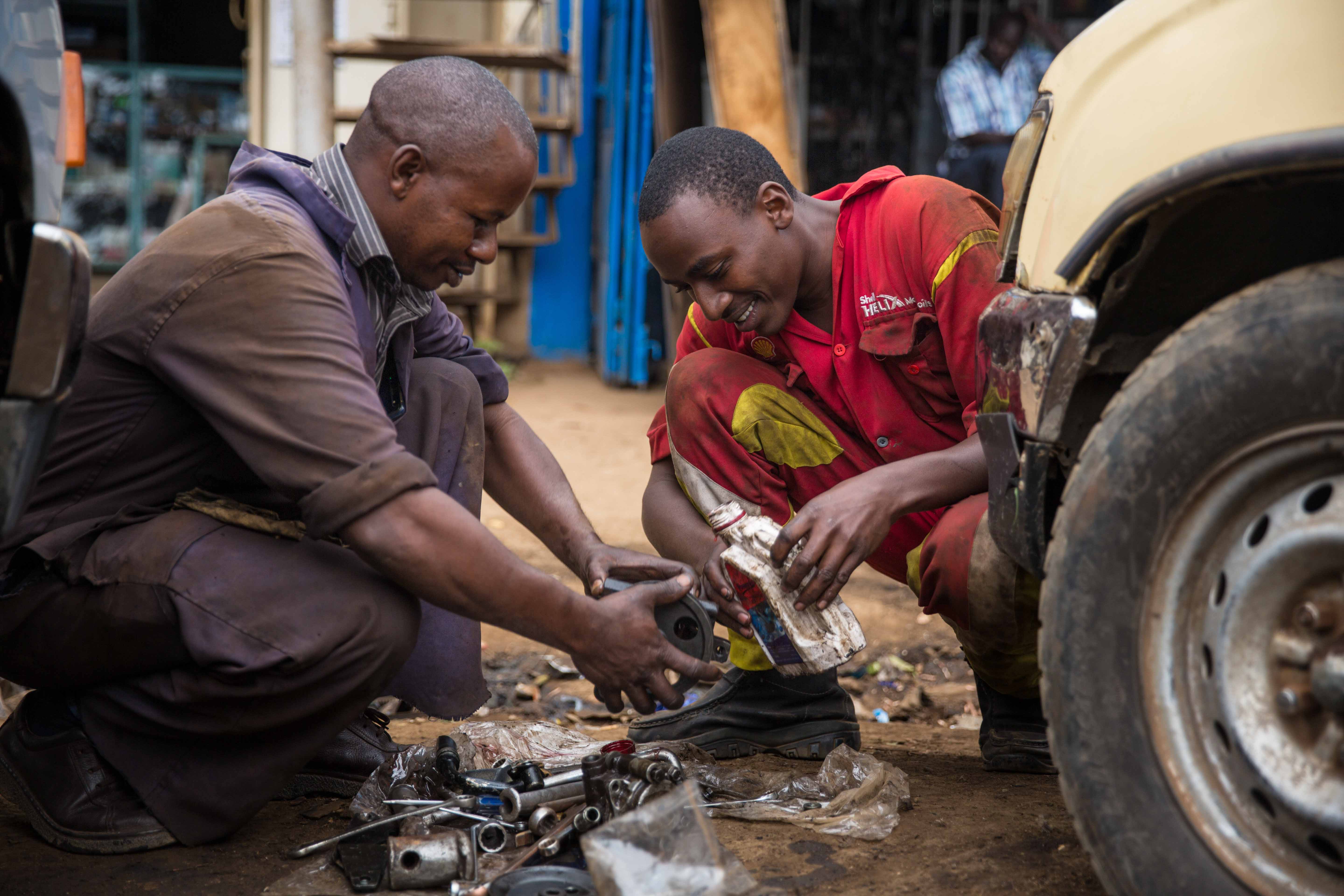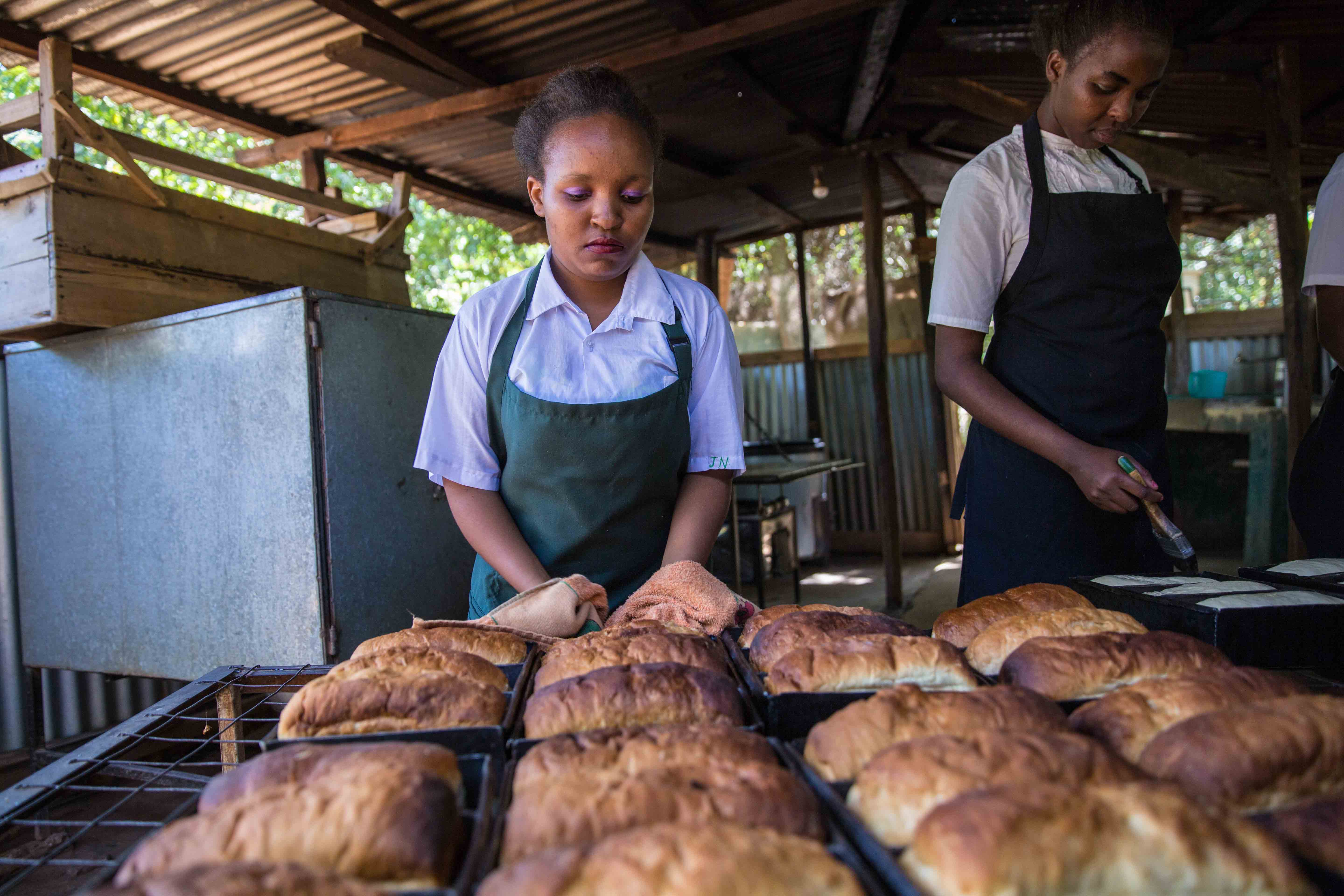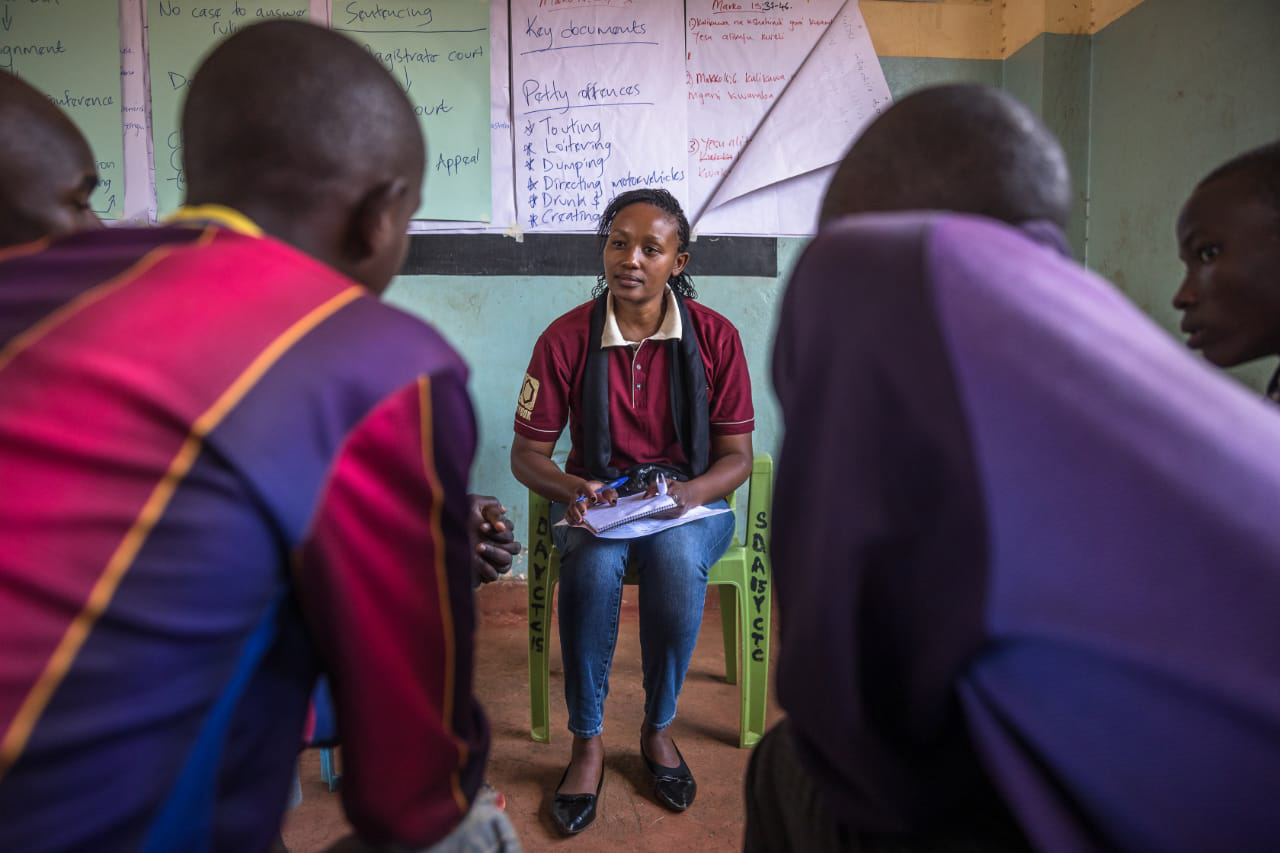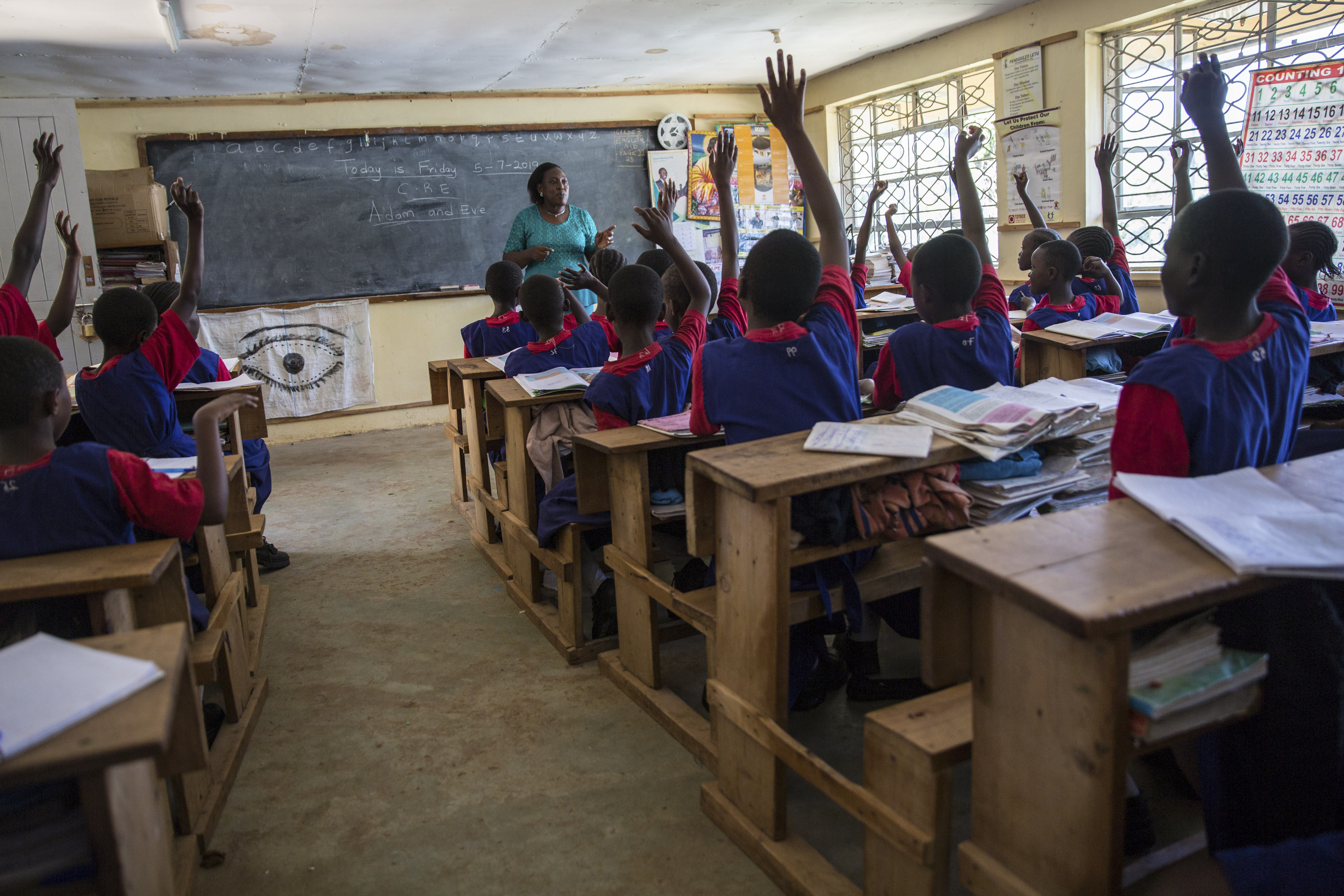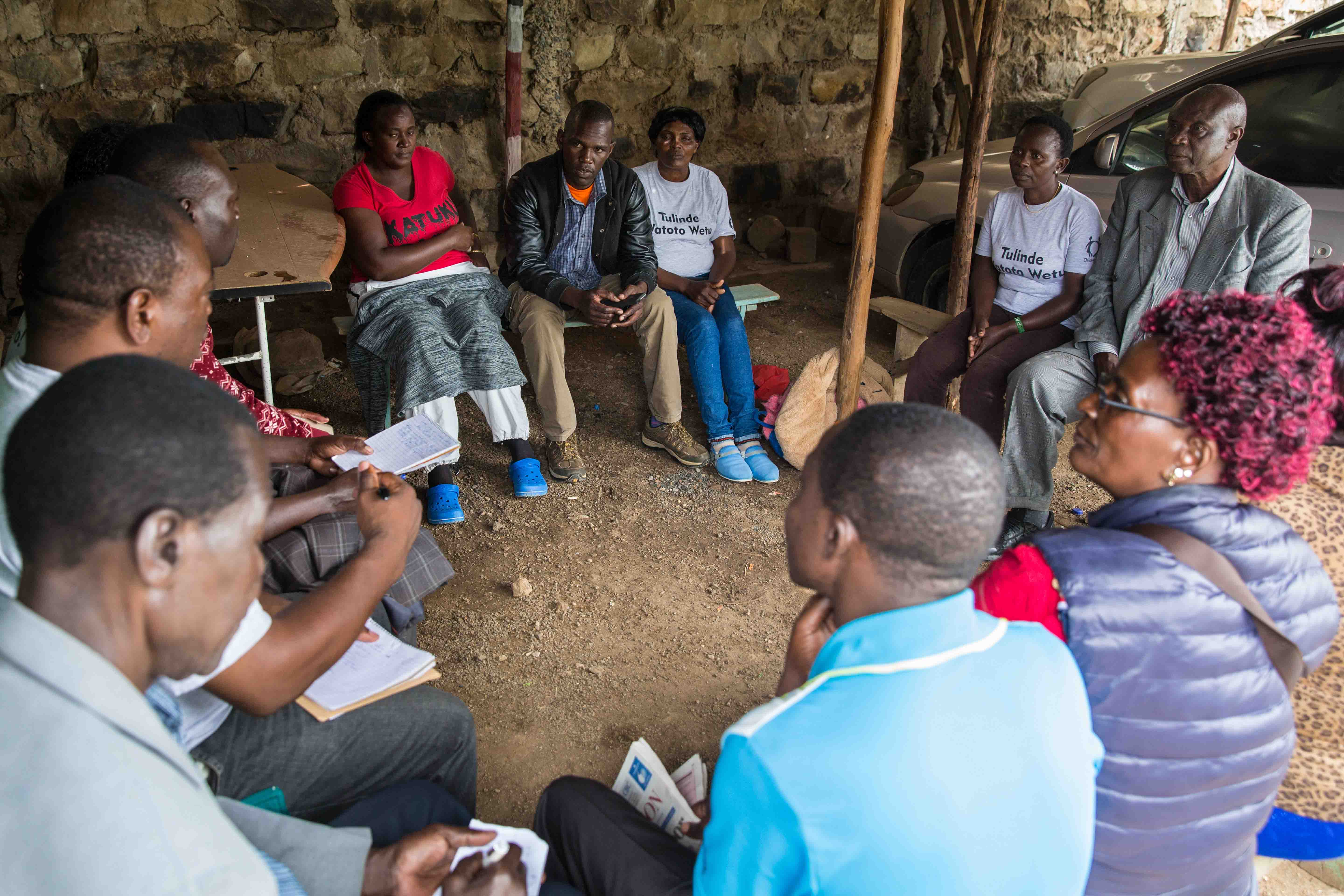Focus Areas
Pendekezo Letu's Focus Areas
To stop the cycle that forces children and young people to survive in such hazardous conditions, the socio-economic situation of the family needs to change. For children to access their basic rights of protection, healthcare, and education, families need to have improved capacity to take care of their children.
Communities and local child protection agencies (schools, government’s children’s departments, and juvenile justice structures) need to have increased awareness of the rights of children and young people and an enhanced sense of commitment and responsibility to better protect children. The Government of Kenya also needs to enforce policies on education and juvenile justice and ensure that adequate resources are allocated to the implementation of these polices.
Street children are ‘one of the world’s most invisible populations’ (Consortium for Street Children, 2019), who fall through the cracks of the Kenyan Child Protection System (CPS). Children in Nairobi are either street connected, who come into the streets to earn a living and go back home or those who lived directly on the streets. Once a child lands on the streets of Nairobi, they will join a gang or known as a street base. A group of children living together for protection and support.
Gentrification has seen the mushrooming of more bases in Nairobi especially in Market areas such as Gikomba, CBD, Dandora dumpsite with Eastleigh having the largest bases. From the pivot projects, we have learned that a street base has children ranging from 6 to 18 years and young adults above 18 years who are also the base leaders.
Our target group are youth women and a small % of adult male in street situations. The high rate of urban poverty that is characteristic of the slum settlements of Nairobi, some of the largest in Africa recognized for its high poverty levels, hunger, illiteracy, pollution, sexual violence, and high mortality rates.
For example, the Dandora dump site offers an alternative means of survival to thousands of households in the sprawling slums covering over 30 kilometers, with the local community and thousands of people relying for their daily income on the dumpsite. Every day, scores of people scavenge through the contaminated garbage to look for food, recyclable plastic, and metal scraps for survival.
For over 10 years, we have been and still are the only organization offering free legal representation for marginalized children in conflict with the law within the Milimani children court in Nairobi Kenya. The project will upscale our work in Nairobi by reaching a much larger and even more vulnerable group of children as the project is not just focused on those in the slums, but also marginalized youth on conflict with the law.
Outcomes over the years demonstrate a strong aspect of social sustainability; capacity building of police, county askaris and local area advisory councils continues to strengthen upholding of the best interest of the child in communities.
Engaging probono advocates through the judiciary probono advocates scheme; engaging the juvenile justice system as members of the court users committee (CCUC) to support fast tracking of cases in the juvenile justice system.
Being the National convener of the child rights sector in the Universal Period Review reporting to the UNHRC; empowering community paralegals and supporting children through mediation and self-representation continues to strengthen the voices of children and youth both in policy and practice.
By strengthening the relationship between EX-CCLs and the police, we envisage to strengthen relationships aimed at reducing police harassment, arbitrary arrest of (C&YLW) and eventual crime reduction.
PKL has been responding to the needs of girls living and working on the streets in Kenya for 25 years, and during this time has directly supported over 11,500 children into education.
Children in the streets remain out of school for long periods. At Pendekezo Letu, we have a short-term transitional home with a capacity of 100 girls and 25 teenage mothers for a 10-month period, to provide remedial education, life skills and psychosocial support to prepare the children to be reintegrated into mainstream schools alongside their siblings of school going age. Older siblings are enrolled into vocational schools’ programs with other street youths.
(our work around UPR, working with NSCYC and where we are members of different networks)
ToDo
Safeguarding
We are a leading child protection and safeguarding organization in Kenya...
Climate Change
As a learning organization, we are of climate change and its effects to the communities we work in...
Children & Youth Policy
We are a community centre and globally connected organization, working collaboratively...

Advocating for access to controlled medicines to avoid fatal overdoses. Capacity building and grassroots organizing for people who use drugs.

Promoting local Policing and law enforcement practices that reduce barriers to healthcare and socil service access.

Prevention and Management of fatal overdose and COVID-19 Emergency Response Program.

Policy innovation that minimizes the role of criminal justice and explores the government's regulations on drugs.

Advocacy for comprehensive sexual and reproductive health information & services.
Our Projects
Here are
our projects
We are a leading child protection and safeguarding organization in Kenya, with long term context specific expertise in capacity building of various stakeholders including members organizations of the Juvenile Justice and child protection actors in Kenya. We have deliver child protection and safeguarding training and consultancies to Kenyan organizations and urban slum communities, covering topics like disability and child protection, safe reintegration of children in institutions, developing child protection and safeguarding policies and strengthening safeguarding practices around children and vulnerable adults.
Since 2014, we have delivered training and consultancies to around 50 organisations, most of them local partners and members of larger international organisations such as Organizations of Acacia (USA), Deafchild Worldwide, KiteChild Organisation (USA), Voluntary Service Overseas (VSO), Benjamin Foundation (Netherlands).
We are members of the Funder safeguarding collaborative, South2south network that aim to strengthening the safeguarding space in the communities where we work. We have a zero tolerance towards all forms of abuse and exploitation. We are committed to safeguard the welfare and dignity of children and vulnerable adults that we come into contact within our work. We recognize our duty of care and we strive to always ensure that no person comes to harm because of our interaction with them.
All staff, volunteers or representatives working for Pendekezo Letu must undergo background checks and must commit to abide by the organisational safeguarding policy and the code of conduct. All support from Pendekezo Letu is free – it should not be given in exchange for sexual favours, economic, political, or other gain.
If you witness harm or feel that you have been harmed or discriminated against due to your gender, ethnicity, religion, age, disability, economic status, or political affiliations by a staff or a representative of Pendekezo Letu, please report to safeguarding@pendekezo.onmiscrosft.com or call/SMS 0717523677. This information will be treated with utmost confidentiality.
As a learning organization, we are of climate change and its effects to the communities we work in. We continue to collaborate with community participants especially children and youth, to co-create adaptive interventions align to resilience.
Projects such as ECO farm focus creating small urban farms in the bases, through rehabilitation of waste spaces to farm vegetables such as kales, onions, tomatoes for consumption and the excess to be sold to the nearby community members. Proceeds from the sale of farm produce will be used by the base members to acquire other food items aimed at making the specific base food secure.
We are a community centre and globally connected organization, working collaboratively to influence child and youth focused policies.
In collaboration with other actors, PKL is at the centre of children and youth policy in Kenya, and around the globe. We work to strengthen the child protection system as an essential channel for the inclusion of street connected children, who have the same rights and heightened protection needs as other vulnerable children, but often operate outside formal and informal protection structures. We work with various actors through advocacy lobbying for policy change and capacity building to strengthen outcomes of children and youth. From community systems to global policy influence.
